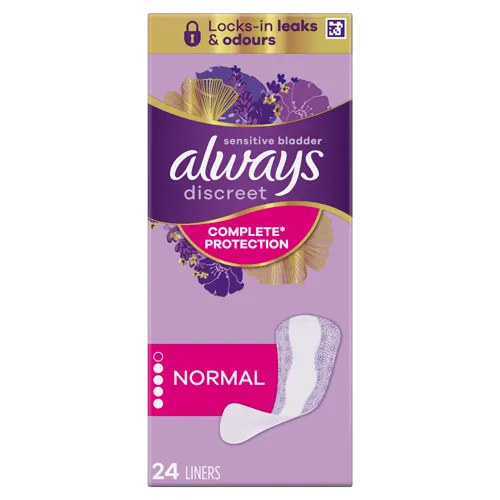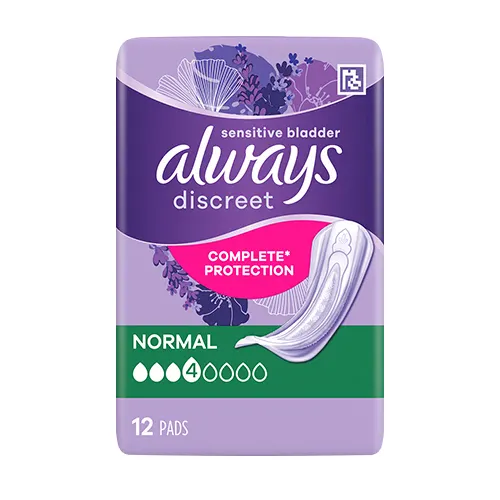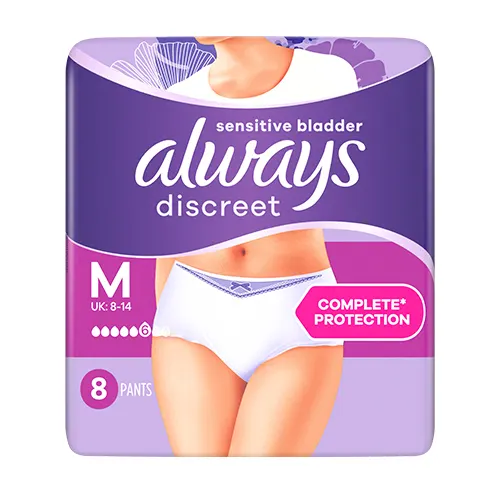
Bladder weakness only happens to women who had children and old people FALSE
Although the risk for incontinence goes up as you age, anyone can experience symptoms of bladder weakness at any time. There are many causes for sensitive bladder. The most common ones are:
-
Pregnancy and childbirth can affect your pelvic floor support structures such as muscles and ligaments. Pelvic floor exercises after pregnancy can give you more control over leaks when you need it.
-
Menopause related sensitive bladder is due to a significant drop in oestrogen levels. Increased frequency and sudden urges are the most common symptoms. Talk about bladder weakness with your doctor during one of your check-ups when discussing the overall change in your body.
-
Being overweight puts pressure on the bladder, urethra and pelvic floor muscles. Fortunately, weight loss can reduce the pressure.
-
Strenuous sports can lead to sensitive bladder due to the excessive demands placed on the bladder that can result in involuntary urine leaks.
There is only one type of incontinence
FALSE
There are different types of incontinence. The main types are:
- Urge incontinence when you have a strong need to urinate but can't reach the toilet in time – it can happen to anyone at any age
- Stress incontinence when you experience bladder leaks when coughing, sneezing or laughing – it is even more common in younger rather than older women.
- Mixed incontinence is the combination of stress and urge incontinence symptoms.

Having a weak bladder is very rare condition
FALSE
Bladder weakness affects 1 in 3 women over the age of 18.
Over half of women never seek help from their doctor regarding bladder weakness.
You should drink as little as possible if you have a weak bladder
FALSE
If you have bladder weakness, there’s no need to avoid drinking in order to reduce the urge to visit the loo. Keep hydrated! Drinking a lot of water can increase the frequency and urgency of urination. But not consuming enough makes your urine more concentrated, both of which boost your chances of bladder irritation. That, in turn, can heighten your risk of incontinence. Also, drinking water can help reduce odours.
Top tip:
Get into the habit of sipping water between meals, and not having anything to drink two hours before bed. Avoiding or reducing caffeine, citrus juices, alcohol and carbonated beverages can help bladder weakness.
The Always Discreet line has a range of products, including incontinence liners, pads, and underwear, each tailored to meet your unique absorbency needs. Always Discreet has taken their trusted absorbency technology and applied it to urinary products, for bladder protection that is comfortable, flexible, and help keep you dry.






